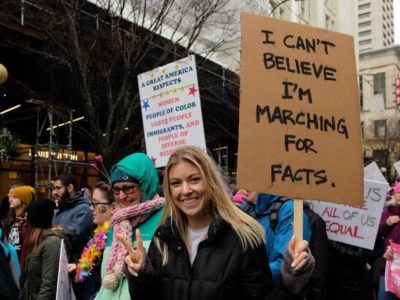Some people out there still don’t know what feminism really is. Not a believer in the equality of the sexes? Please tell me what you are then. The need for feminism strengthened in my life when I realized not all of my peers openly supported women’s rights. The future is female, so you better get on board. We all need feminism whether you recognize it or not. Every gender and sexuality deserves equity in human rights. We accomplish more when we support one another, let’s start empowering each other now.
I would like to open with a favorite quote from my women’s studies professor:
“While there are many feminist strands, which is to say different kinds of feminism, there are also many core principles. The commitment to actively oppose and end patriarchy is one. The recognition that patriarchy works like other systems of oppression, like racism and capitalism, to value some people and brutalize others is another area of agreement. Like other systems of oppression, it also requires the support of many members of the groups it oppresses.” ― Pumla Dineo Gqola
Understand more about why you need feminism from these 15 best feminist quotes.
1. On What We’re Born Into
“What’s the greatest lesson a woman should learn? That since day one. She’s already had everything she needs within herself. It’s the world that convinced her she didn’t.” – Rupi Kaur

Society instills inferiority complexes in women from youth. When born into a culture, government and world where your sexual characteristics teach you to be the less dominate counterpart, we struggle to regain the self-worth and confidence men were born with. Our system and culture functions under a patriarchy resulting from colonization where women systemically fit the inferior mold.
2. On Masculinity
“Masculinity is a hard, small cage, and we put boys inside this cage.” – Chimamanda Ngozi Adichie
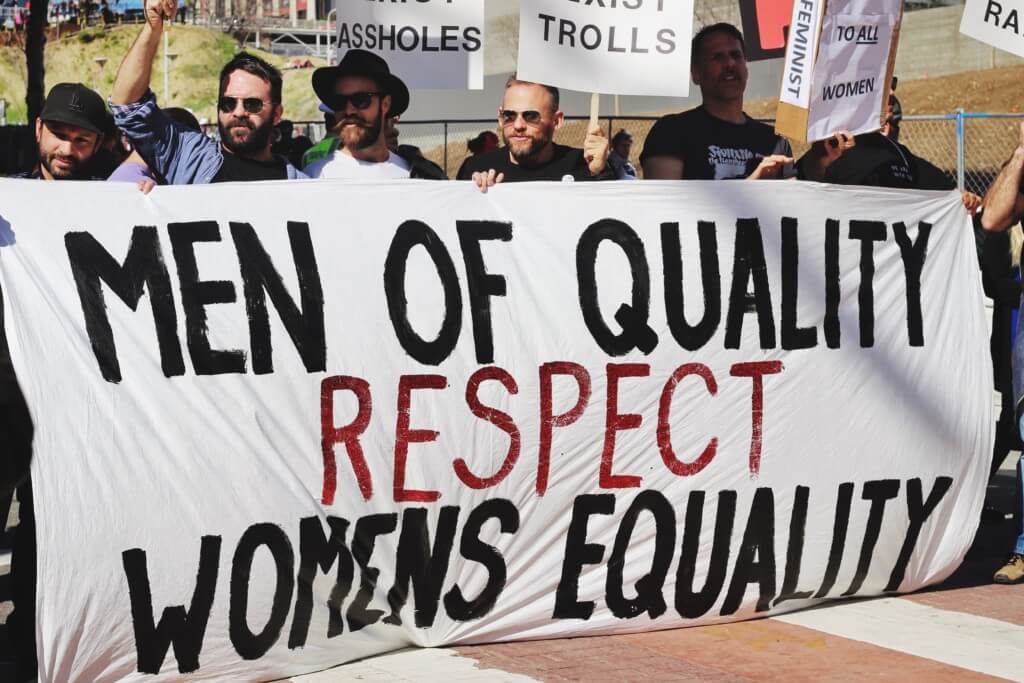
The fragility of masculinity pushed college-aged men to declare Saturday “for the boys,” because we can’t forget that men need a break from women, to just, you know, “be men.” But this fragility comes from a system that, like Adichie says, confines what men can feel, like and do to a very small box. Sexism hurts men just as much as women.
3. On Double Standards
“If you criticize X in women but do not criticize X in men, then you do not have a problem with X, you have a problem with women. For X please insert words like ‘anger,’ ‘ambition,’ ‘loudness,’ ‘stubbornness,’ ‘coldness,’ ‘ruthlessness.’” – Chimamanda Ngozie Adichie
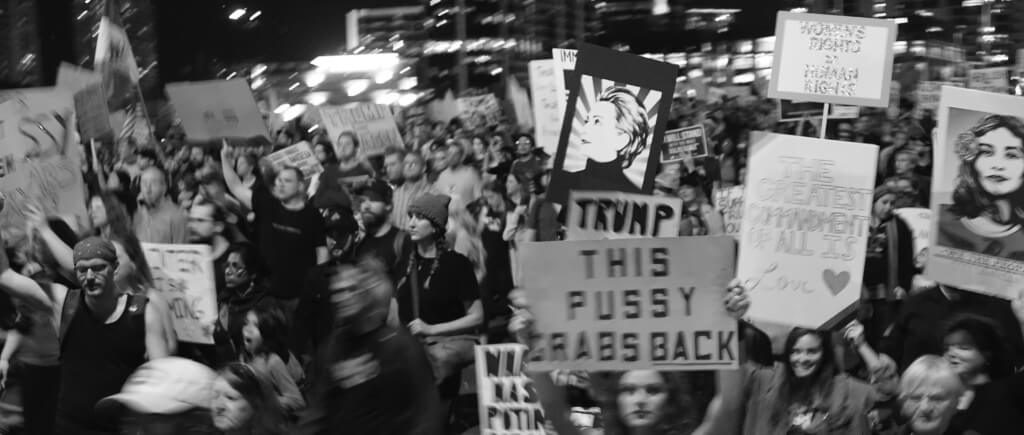
All of those words describe Hillary Clinton during the last election just as much as they describe her male counterpart. Society seems to make excuses for the way men act, describing their attitudes as a natural part of male existence, while women suffer for the same behavior. When a woman takes on so-called masculine attributes such as fearlessness, boldness or leadership, the population enters a state of shock. However, even when Hillary bargained with the patriarchy, fulfilling the custom role of what it means to be a female, she still fell short. Feminist ideals might fix all of this.
4. On Feminism vs. Human Rights
“Some people ask: “Why the word feminist? Why not just say you are a believer in human rights, or something like that?” Because that would be dishonest. Feminism is, of course, part of human rights in general—but to choose to use the vague expression human rights is to deny the specific and particular problem of gender. It would be a way of pretending that it was not women who have, for centuries, been excluded. It would be a way of denying that the problem of gender targets women.” – Chimamanda Ngozi Adichie
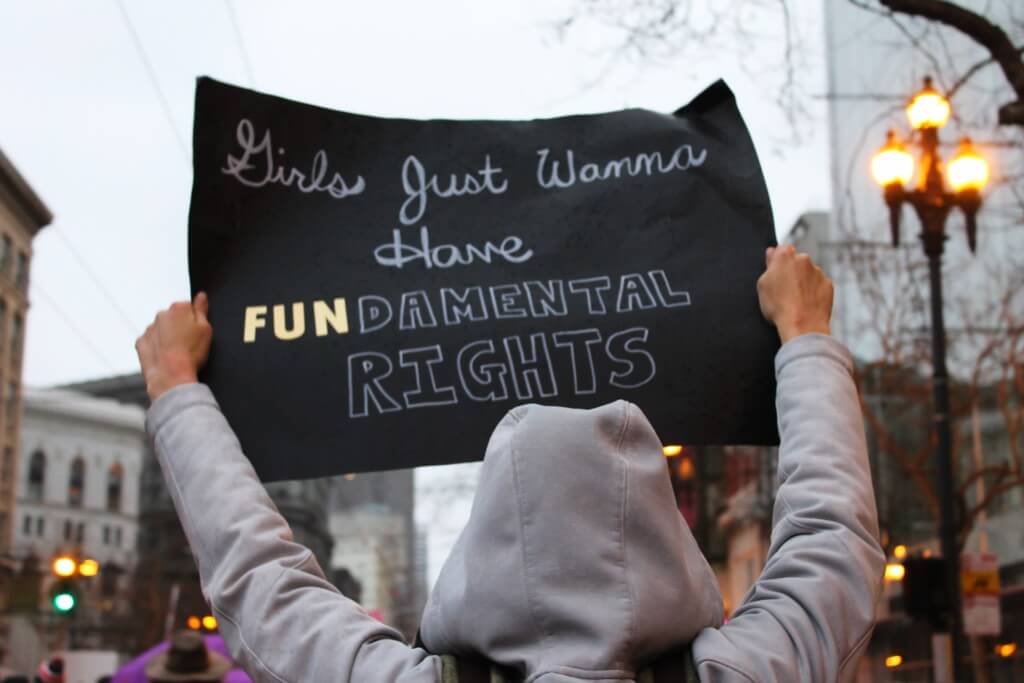
Parallel this to Black Lives Matter. The alternative “All Lives Matters” movement completely disregards the oppression and hardships blacks have faced for centuries. To say you consider yourself a human rights activist when it comes to gender equality disregards the battle women have fought for so long. Let’s shed light by naming these social inequalities specifically to the oppressed at hand.
5. On Sitting Still and Looking Pretty
“Well-behaved women seldom make history.” – Lauren Thatcher Ulrich
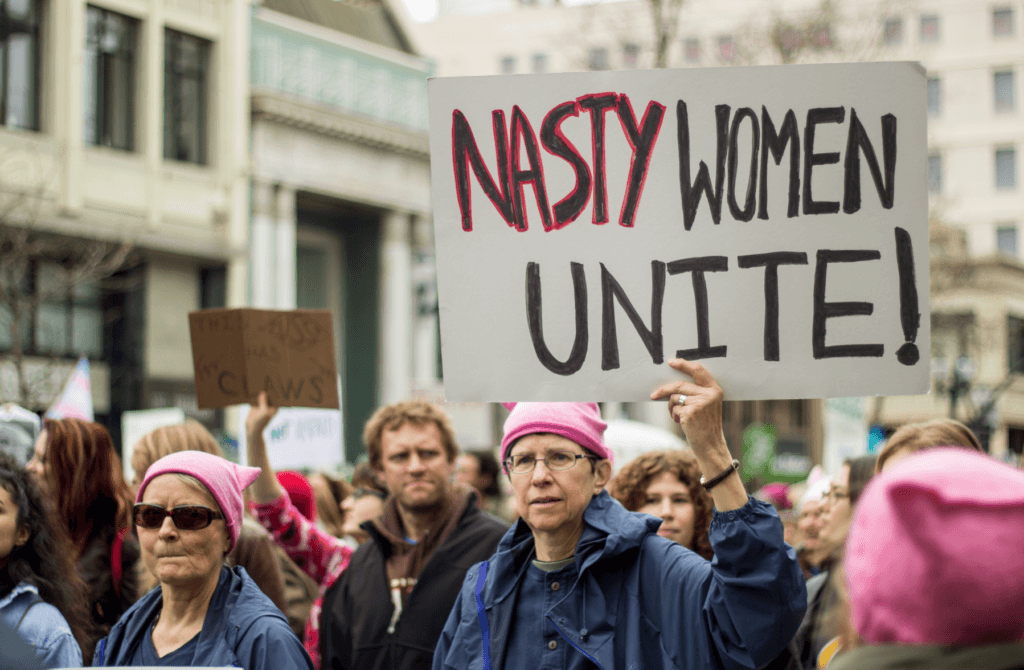
I’m a nasty woman―are you? Passion and anger create history. The patriarchy dictates the expectations of women, so when we act outside of those expectations, we “misbehave.” Serena Williams, one of the greatest living athletes, “misbehaves.” Serena recently triumphed a tennis match victory while eight weeks pregnant, showing the world women are not the least bit fragile but powerful and strong.
6. On Feeling Ashamed of Ourselves
“We teach girls shame. “Close your legs. Cover yourself.” We make them feel as though being born female they’re already guilty of something. And so, girls grow up to be women who cannot say they have desire. They grow up to be women who silence themselves. They grow up to be women who cannot say what they truly think. And they grow up — and this is the worst thing we do to girls — they grow up to be women who have turned pretense into an art form.” – Chimamanda Ngozi Adichie

Reclaim the nature of your body. Women are allowed to be sexual and have ownership over their own bodies without the exposure of assault and reprimanding. How can you throw money at a stripper, but then call a woman a slut? This p–ssy grabs back!
7. On Intersectional Feminism
“My feminism will be intersectional, or it will be bullsh–t.” – Flavia Dzodan
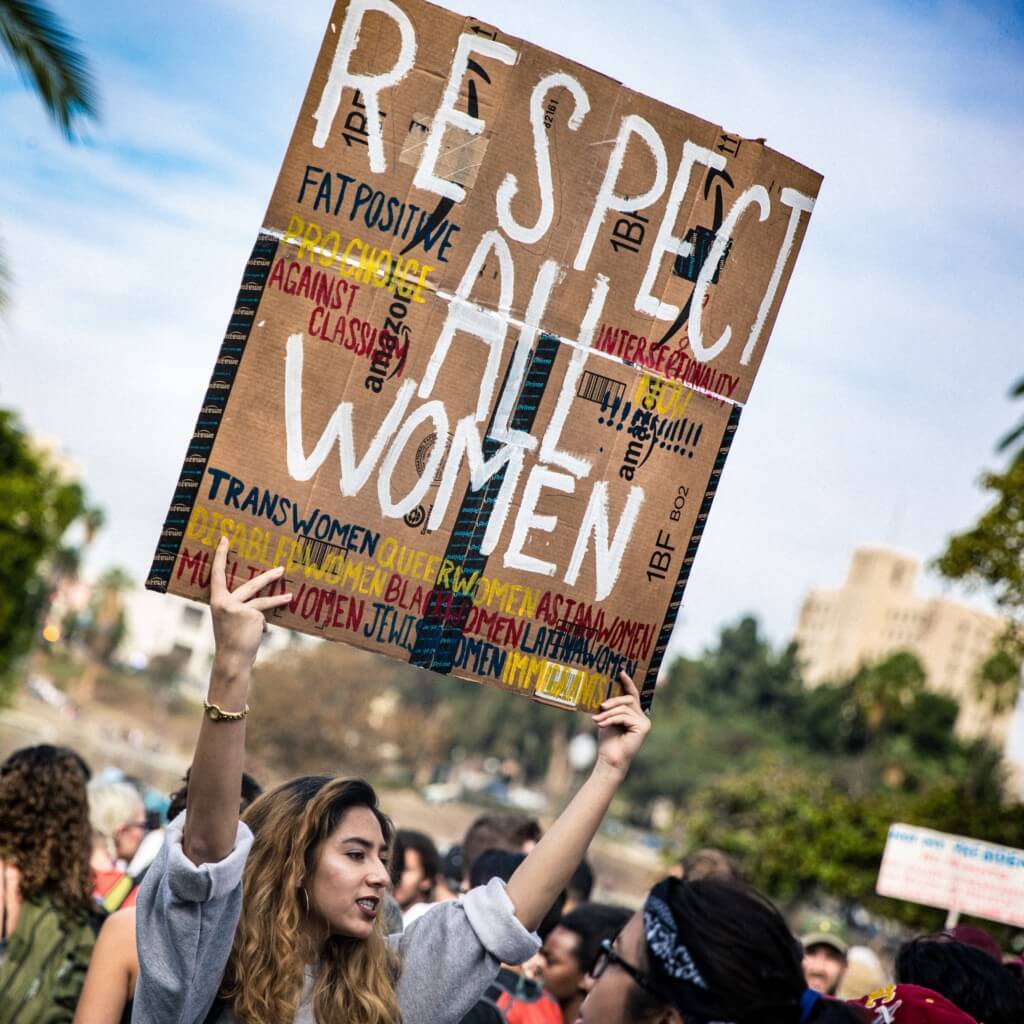
Intersectional feminism takes more than sex or gender into account. Intersentional feminism means understanding how other factors that affect our experience in the world overlap with sex and gender. For example, a black woman experiences the world very differently from a white woman. If we examine the arts, we know diverse, robust roles for women give us small wins for feminism. However, the Center for the Study of Women in Television and Film found that 68 percent of all female characters were white in the top 100 films of 2017. 16 percent were black, seven percent were Asian, seven percent were Latina and two percent were of another race or ethnicity. The LGBTQ+ community also rarely makes it to a films plot-line and hetero actors or actresses often take on their roles. Women in varied leading roles rocks, but we clearly need more corrections to our casting.
8. On Careers
“We teach girls to shrink themselves, to make themselves smaller. We say to girls, you can have ambition, but not too much. You should aim to be successful, but not too successful. Otherwise, you would threaten the man.” – Chimamanda Ngozi Adichie

I love when men shake in their boots from the threat of a female. After all, who put them in time out as young boys anyway? Likely a mother (considering how the patriarchy delegates primary parenting to the mother). Daughters frequently receive less empathy and praise and more “put on your big girl pants” and “you don’t always get what you want.” When it comes time for sons to leave time out and daughters to go after what they want, the daughters get put in grown-up time out and the sons get what they want.
9. On the Real Definition of Feminism
“If you believe in equality, you’re a feminist, I’m sorry to tell you.” – Emma Watson
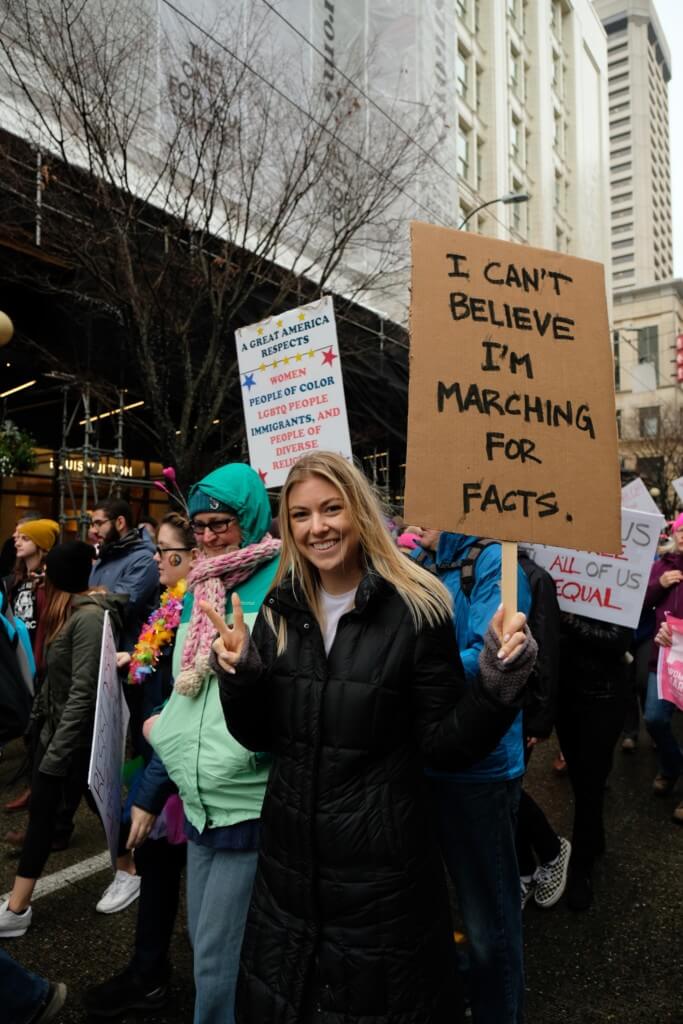
Why just dance around the word when you believe in the definition? Stop feeling so scared of the root “female,” or if your Uncle Joe will call you names for supporting your girlfriends’ fundamental rights.
10. On Misconceptions
“The feminist killjoy begins as a sensationalist figure. It is as if the point of making her point is to cause trouble, to get in the way of the happiness of others, because of her own unhappiness.” – Sara Ahmed
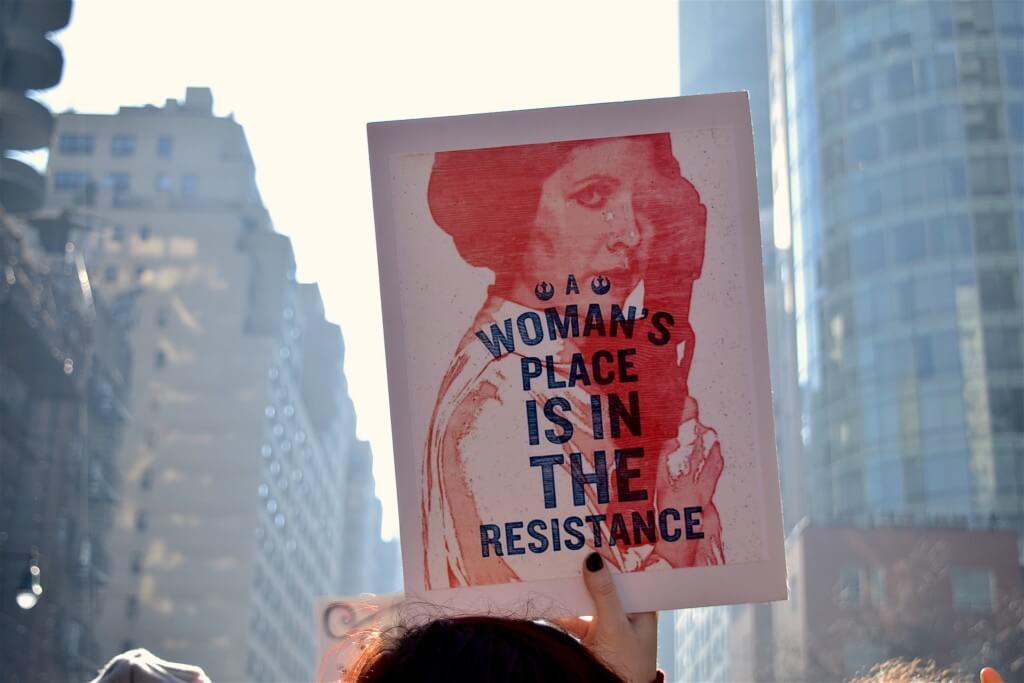
A killjoy disrupts others happiness, but if others happiness roots from injustice, is being a killjoy offensive? The status quo remains sexist, and to generate change, we need to create uncomfortable spaces. Do not disregard your personal happiness and comfort that others unjustly sit compromise.
11. On Gender
“The problem with gender is that it prescribes how we should be rather than recognizing how we are. Imagine how much happier we would be, how much freer to be our true individual selves, if we didn’t have the weight of gender expectations.” – Chimamanda Ngozi Adichie

Society has constructed the provisions of gender. Imagine just being, without being told how to be, where the aspects of gender and sexuality flow across borders, unstrapped by cis and hetero concepts. Consider life, without what comes behind being born a male/female―a utopian concept, really.
12. On Who Tells You What to Do
“When you grow up as a girl, it is like there are faint chalk lines traced approximately three inches around your entire body at all times, drawn by society and often religion and family and particularly other women, who somehow feel invested in how you behave, as if your actions reflect directly on all womanhood.” – E. Thomas
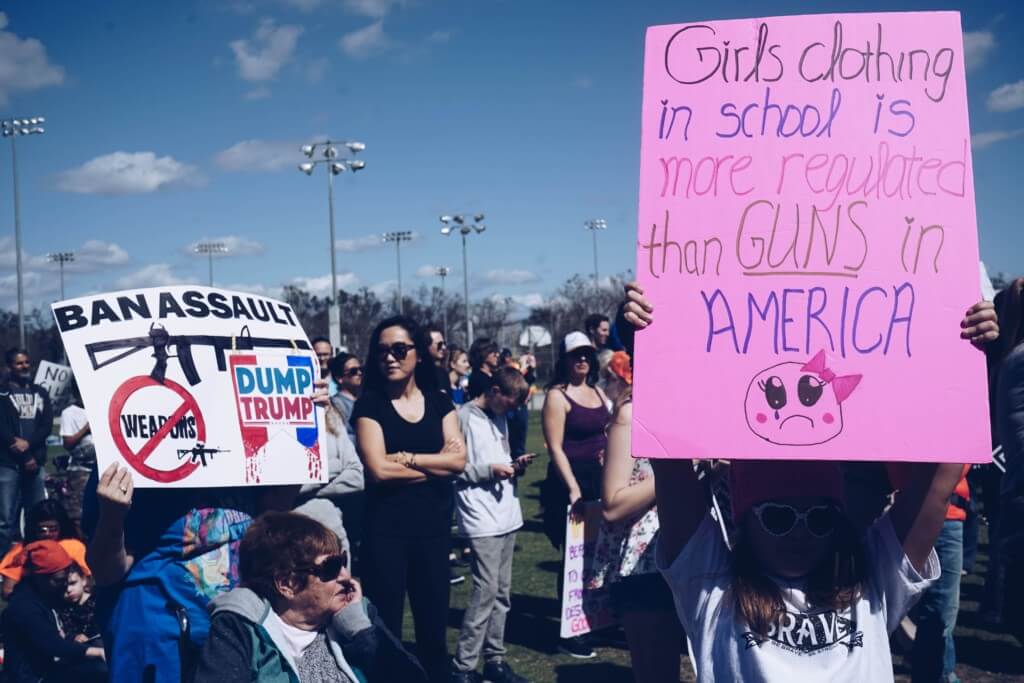
Look at the lines drawn around your life and household. What were you told to do or be? Marry a rich man? Have kids? Cook? Clean? How to dress? Do your the people around you hold men the same standards? Look at the underlying expectations of your sex. Understand how feminism can help you take back ownership of your decisions.
13. On Working Together
“We cannot succeed when half of us are held back.” – Malala Yousafzai

Not only are women held back, but also so many communities within the female population. Our population is intersectional, so our feminism should not put one class, race, religion or sexuality in front of one another. You can’t move forward by stepping on those oppressed.
14. On Standing Up for Ourselves
“When women respond negatively to misogynistic or rape humor, they are ‘sensitive’ and branded as ‘feminist,’ a word that has, as of late, become a catchall term for ‘woman who does not tolerate bullshit.’” – Roxane Gay
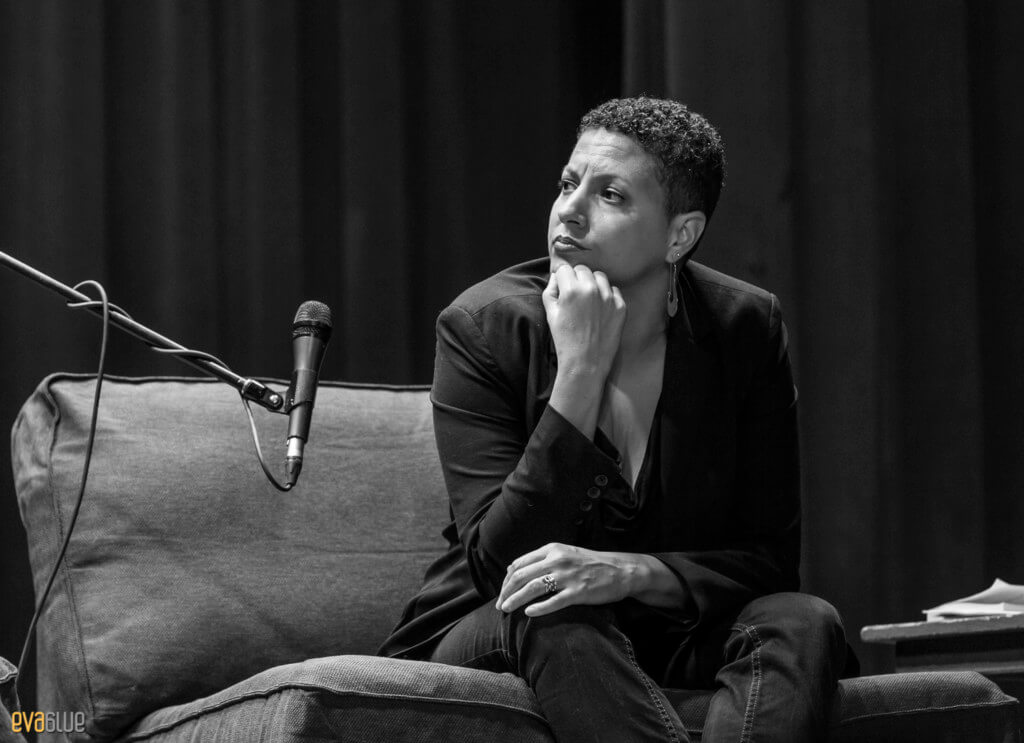
The world wants to quiet women about misogynistic acts because men feel safer that way. When women bring up injustice in relation to rape, assault or any discrepancy, her “hormones” are acting up. But has anyone noticed how defensive men get when their masculinity, heterosexuality or power come into question?
15. On Effecting Change
“How can we effect change when only half of it is invited, or feel welcome to participate in the conversation?” – Emma Watson
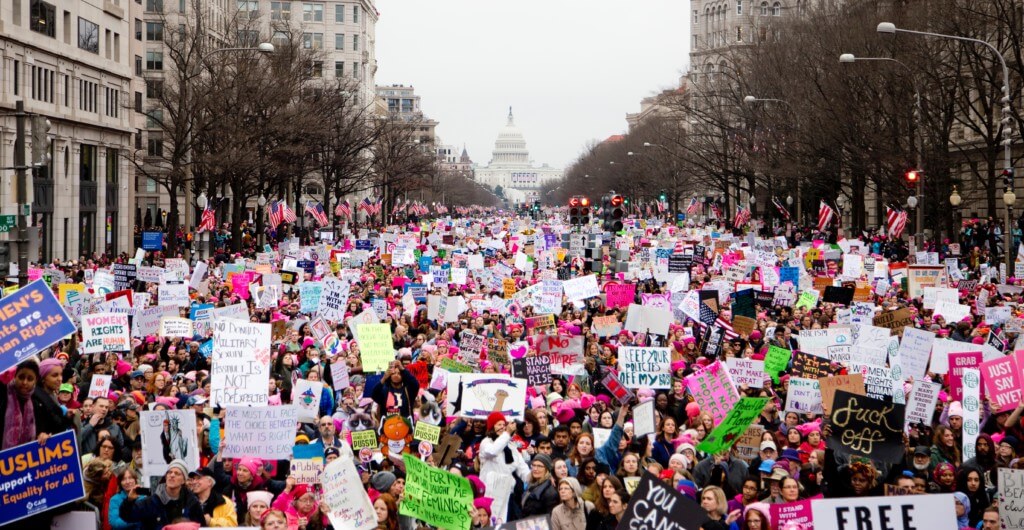
All in all, the world is stronger together.
College feminists answer, “What does feminism mean to you?”
“I can do whatever a man can do without any stigmas or double standards. It’s just a way for women to be everything they’ve dreamt about as children and more,” Penn State University junior Mallory Beard said.
“Well, I think feminism is about equality for all. It’s not just ‘women’s rights,’ it’s human rights. It transcends women’s rights because you can’t have true feminism without acknowledging the disproportionate effects society has on the trans community and people of color. It’s needed because not everyone is born equally. Everyone has a different start and society will treat you differently based on your gender, sex, skin color and so on. I think it’s our job to acknowledge our privileges and work hard to give everyone else the same opportunities as ourselves,” Penn State University senior Matt Raco said.
“Feminism is important to think about especially in college because this is the beginning of when we think about how we will act in our workplaces, how we will choose who we marry, how we will raise our kids, and other decisions like that. We should think about how we can do those things in a way that promotes equality so the generation after us can be better than us,” Creighton University senior Gabi DiMatteo said.
“There isn’t one true definition of feminism. It’s highly complex and much more than just the concept of man and woman being created equal. Feminism applies to all genders, races and sexualities, and is necessary for the betterment of life in any society,” Drake University senior Mia Tirado said.

